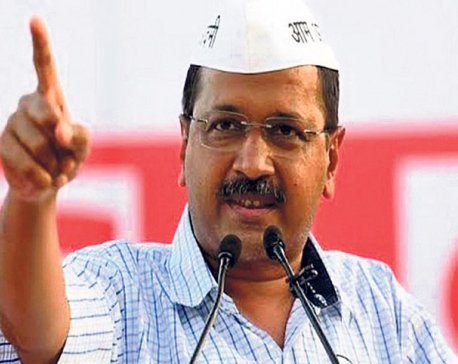
OR
Poll time, prison time: On the continued incarceration of the Delhi Chief Minister
May 2, 2024 07:30 am
The continued incarceration of Delhi Chief Minister Arvind Kejriwal in the midst of a general election highlights the hard political realities that seem to determine which leader gets prosecuted or arrested on allegations of corruption. Over the decades, it has become clear that only an unfriendly regime usually pursues charges against key political rivals; and that the status of relations between the party that runs the government of the day and those facing such charges dictates the course of action for supposedly independent agencies.
AAP trap: On Arvind Kejriwal’s arrest
March 25, 2024 07:30 am
Delhi Chief Minister and Aam Aadmi Party (AAP) leader Arvind Kejriwal’s arrest by the Enforcement Directorate (ED) raises disturbing questions about the direction of India’s democracy and federalism. The political intent of the arrest of a key leader of the Opposition, and a serving Chief Minister in the run-up to the general election, is unmistakable.
Trending
Just In
- PM Dahal pledges support for innovation and entrepreneurship
- Pokhara High Court orders recount of votes in Byas Municipality
- NOC slashes price of petrol by Rs 7 per liter, diesel and kerosene by Rs 5 per liter
- Ncell launches a new campaign ‘Sadhain ON’ to waive off all unintended charges for mobile data
- Daily life affected by Mechi Highway closure
- CAN lifts suspension on Sandeep Lamicchane
- CAN positive about sending Sandeep Lamichhane to World Cup
- Tokha Municipality starts removing illegal structures










